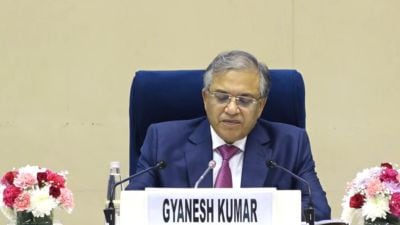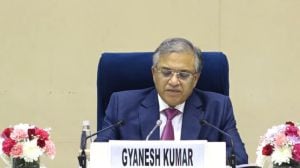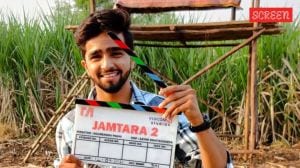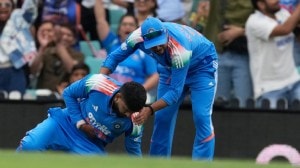Survivors living with memories of past struggle with the present
Pehle ka sab kuch yaad hai,abhi ka kuch bhi nahin (I remember everything of the past,nothing of whats happening now), says Ameena Abbas Behlim
Pehle ka sab kuch yaad hai,abhi ka kuch bhi nahin (I remember everything of the past,nothing of whats happening now), says Ameena Abbas Behlim.
A survivor of the Naroda Patiya massacre,Behlim suffers from bouts of amnesia. Often,she forgets the way to her home when she steps out. However,the rapes and murders she saw in 2002 regularly play out in her mind.
Behlim isnt the only one dependent on medicines,tonics,pills and prescriptions to get her through memories of the past. She is among the several survivors whom the violence dealt a deep psychological impact,leaving them battling mental illnesses and stress and anxiety disorders.
A security officer at a printing press at Chiloda for more than 10 years,Behlim,52,said she had loved her job but was thrown out after the riots because she is a Muslim.
I saw horrifying mass murders near my house,the neighbourhood burning and women howling for help. Behlim sheltered a rape victim after her children moved to Mumbai refusing to stay back at Naroda Patiya.
Abdul Salaam,Imam of Noorani Masjid in the area,has panic attacks. He is afraid to sleep alone inside the mosque,and gets scared seeing a crowd outside it. The rioters had blasted the mosque with gas cylinders. There is a whole lot of medicines I pop in everyday to put anxiety under control, he says.
The psychiatrists in Ahmedabad said women victims were found to be more vulnerable to mental problems. However,while around 90 per cent of them came in for preliminary counselling,men generally took time acknowledging the symptoms,seeking help two years later.
Suraiyabano,a divorcee,suffers from acute post-traumatic disorder. The 42-year-old had saved herself from the rioters by running away to a ground near Saijpur Bogha and now stays aloof from the others at Patiya. Often,she runs out of her house,calling out: Chalo maidaan mein bhaago (Run,run towards the fields). She has tried committing suicide thrice.
With children to raise,Suraiyabano works as a help to make a living. However,she rarely stays long with an employer,picking up a fight and quitting. Says sister Saira: Suraiya suddenly thinks about her dead son and starts shouting for help. Her husband left her for another woman. She often beats up her neighbours if they come to her house to greet her.
Contrary to Suraiya,Hanif Sheikh,66,sits destitute at the entrance of Patiya. No longer able to hear and see clearly,he bumps into vehicles as he rushes to greet visitors. A labourer once,Hanif says: After the riots,my wife and children moved out of Ahmedabad. I was reluctant. Gradually,I started getting depressed and after that never felt like moving out of this place. I dont want to start anything afresh.
Many evenings,as dusk settles in,he can be seen sobbing at his permanent place outside the Iqra Primary School at Patiya. This is the time when my young nephew was killed, Hanif says.
Doctors at the Government Mental Health Centre counselled some 1,225 patients in relief camps from March to July in 2002. Most had symptoms of anxiety and depression. Dr Rakesh Patel,a psychiatrist at Naroda Patiya,says the numbers have come down but he still gets patients who witnessed the riots struggling with the effect.
The mental ailments are not too serious but when there are hard,pressing situations or a chaotic incident,they get panic attacks, he says.



- 01
- 02
- 03
- 04
- 05




























